Celebrating Juneteenth 2023

Celebrating “Freedom Day” 2023: A Virtual Juneteenth Exhibit with NHD Massachusetts
Juneteenth (short for “June Nineteenth”) celebrates the date in 1865 when Union troops arrived in Galveston, Texas to take control of the state, declaring that according to the 1863 Emancipation Proclamation, all enslaved people in Texas are free. Since then, Juneteenth celebrations have honored our country’s second independence day and recognized the ongoing fight for human rights and equality.
Though it has long been celebrated among African American communities, Juneteenth is a part of history that still remains largely unknown to the wider public. In 2020, Juneteenth was declared a state holiday in Massachusetts, and the following year was recognized as a federal holiday.
The Massachusetts Historical Society began an annual NHD Massachusetts Juneteenth exhibition in 2020 with three goals: to promote an understanding of and engagement with the Juneteenth holiday; to highlight select NHD student projects whose work explores topics related to African American history, culture, achievement, and freedom; and to spread awareness of these often marginalized historical narratives. This year's NHD projects approached history through the theme of "Frontiers in History: People, Places, Ideas."
The Massachusetts Historical Society invites you to explore this original and extraordinary student work from the 2023 NHD Massachusetts competition season.
2023 National History Day in Massachusetts Projects
Documentaries
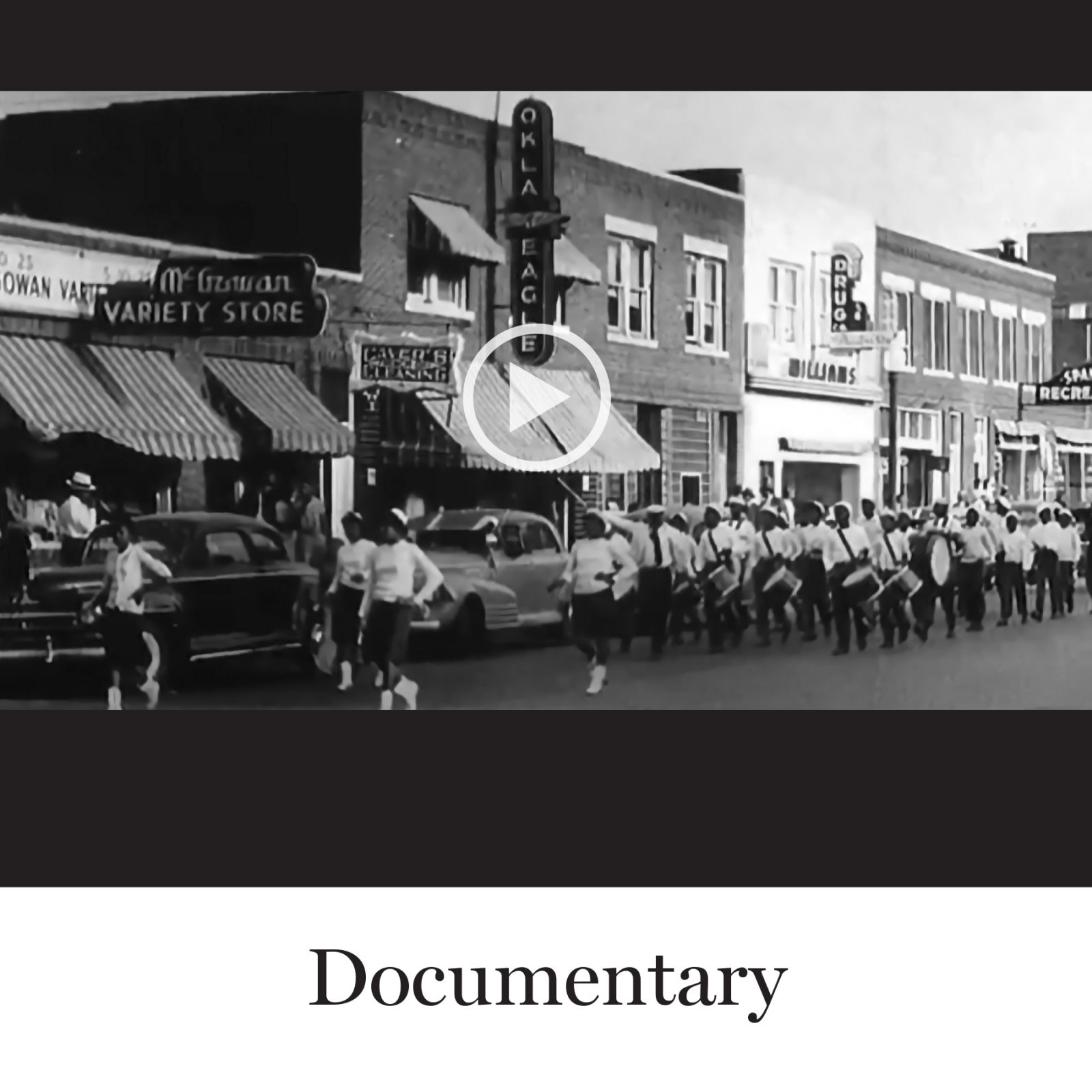 Black Wall Street: Triumph in Tragedy
Black Wall Street: Triumph in TragedyEllie Clark and Nina Crean
Hingham High School
"Greenwood residents thrived despite facing racism and strict segregation laws in the early 1900s. Collectively, they managed to build one of the wealthiest African-American communities in the United States. The district thrived with over 70 businesses owned by Black entrepreneurs, many of whom were ancestors of slaves. Some buildings on the avenue were grocery stores while others were restaurants, hotels, barbers, newspapers, libraries, lawyers, dentists, or doctors’ offices. Turned away by other white-owned businesses in Tulsa, these pioneers had to start from scratch and develop their own economy."
Process Paper and Bibliography
----
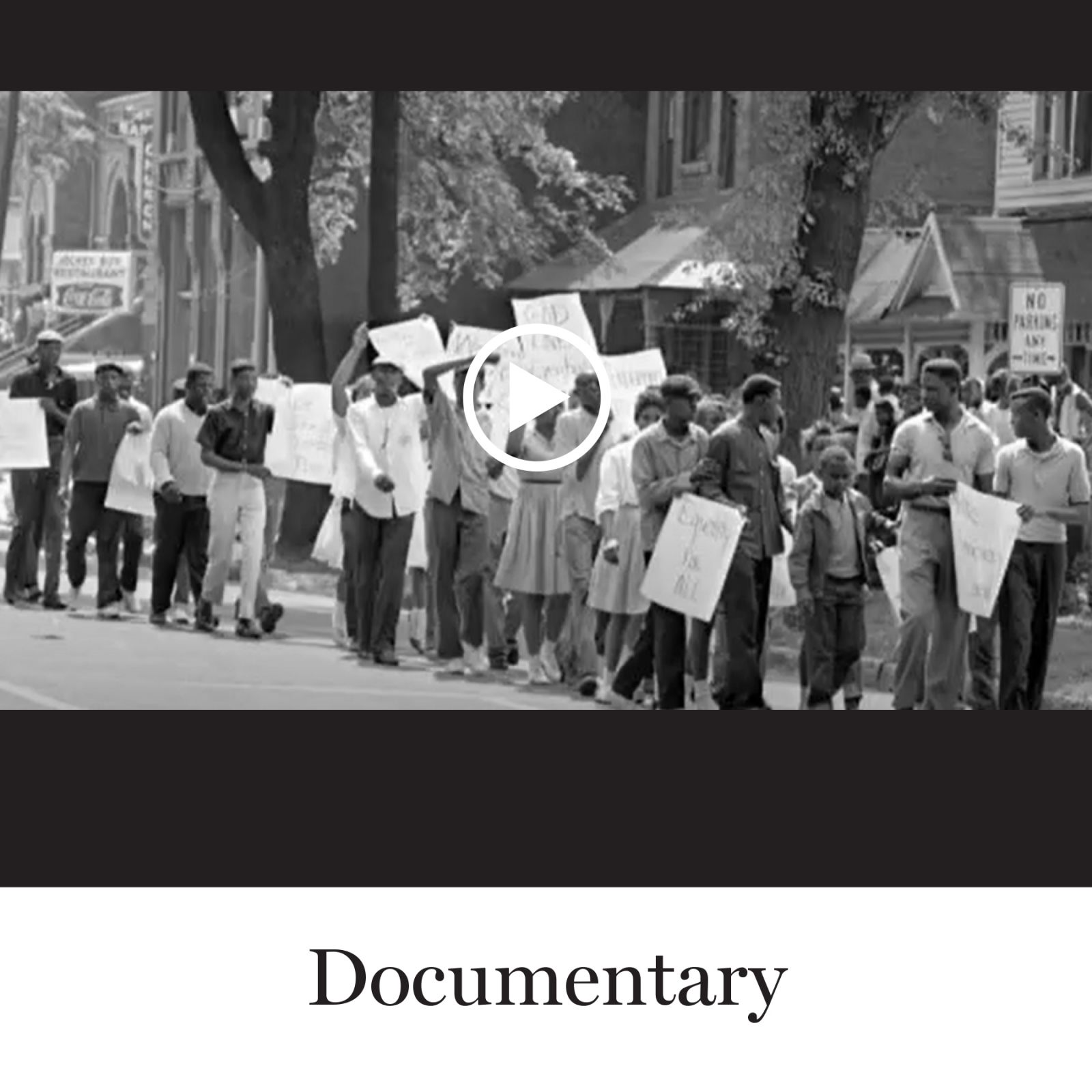 The Children's March of 1963: A Frontier in the Civil Rights Movement
The Children's March of 1963: A Frontier in the Civil Rights MovementJude Givens
Brookline Heath School
"When I forged on in my research, I began to see some of the many ways that the Children’s March represented frontiers - the Birmingham location was the most racist and one of the most violent during segregation, the children were some of the youngest activists, the numbers of kid activists was so great, and more. I ultimately found that the Children's March of 1963 was a frontier in the civil rights movement, a catalyst for the signing of the 1964 Civil Rights Act, and it reinvigorated the civil rights movement overall."
Process Paper and Bibliography
----
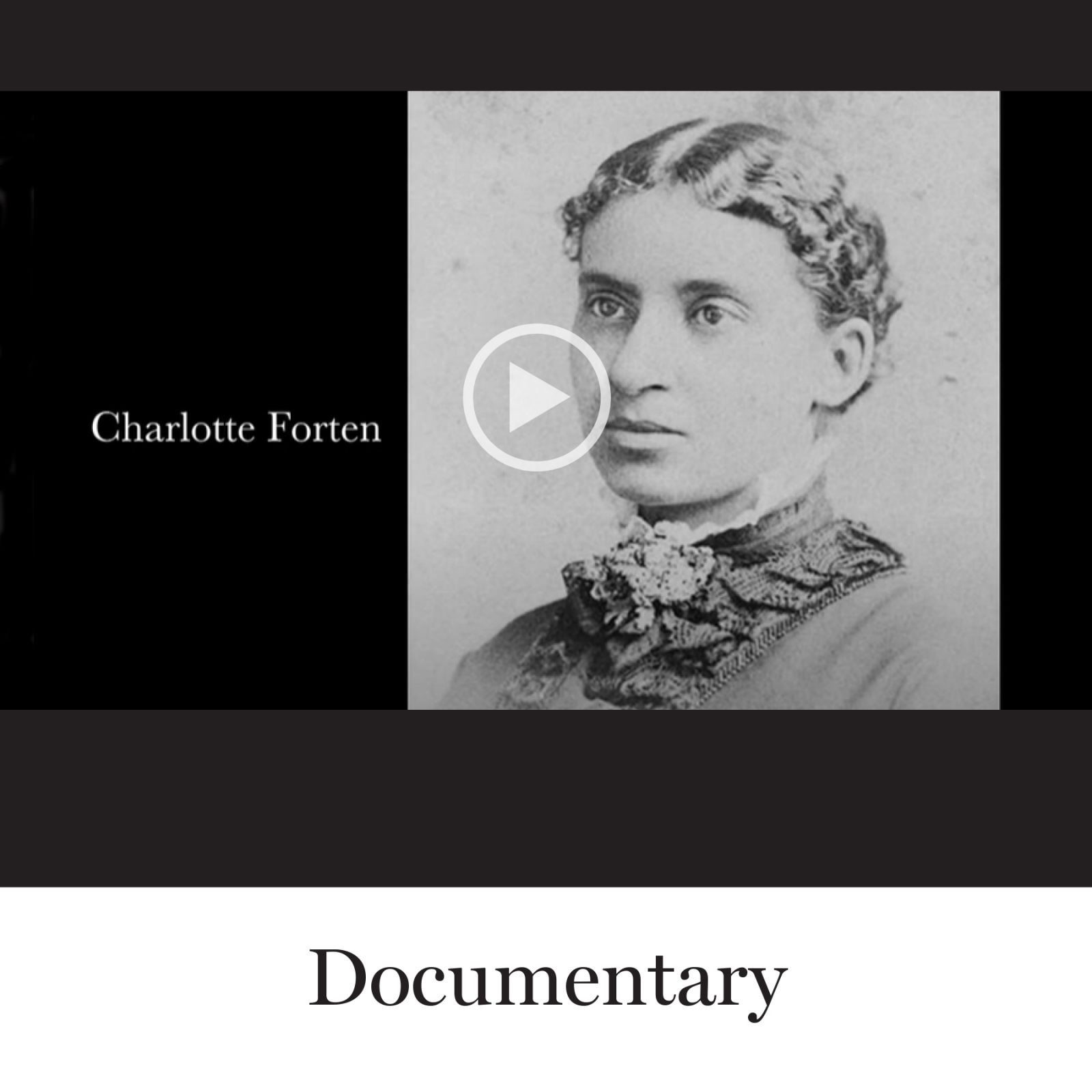 “I Will Do All… in my Power, While Life and Strength Last”; Charlotte Forten’s Pursuit of Educational Access for All
“I Will Do All… in my Power, While Life and Strength Last”; Charlotte Forten’s Pursuit of Educational Access for AllJulia Bial and Claire Gardella
Hamilton-Wenham Regional High School
"This documentary will present the story of Charlotte Forten and the Port Royal Experiment. Charlotte Forten, a free and well educated black American, traveled to South Carolina to volunteer at the Port Royal Experiment where she worked with and taught newly freed children that had previously been working on the lands of the Sea Islands. Her journey had a lasting impact on the development of the black community in the U.S. and created a standard for black education."
Process Paper and Bibliography----
Exhibits
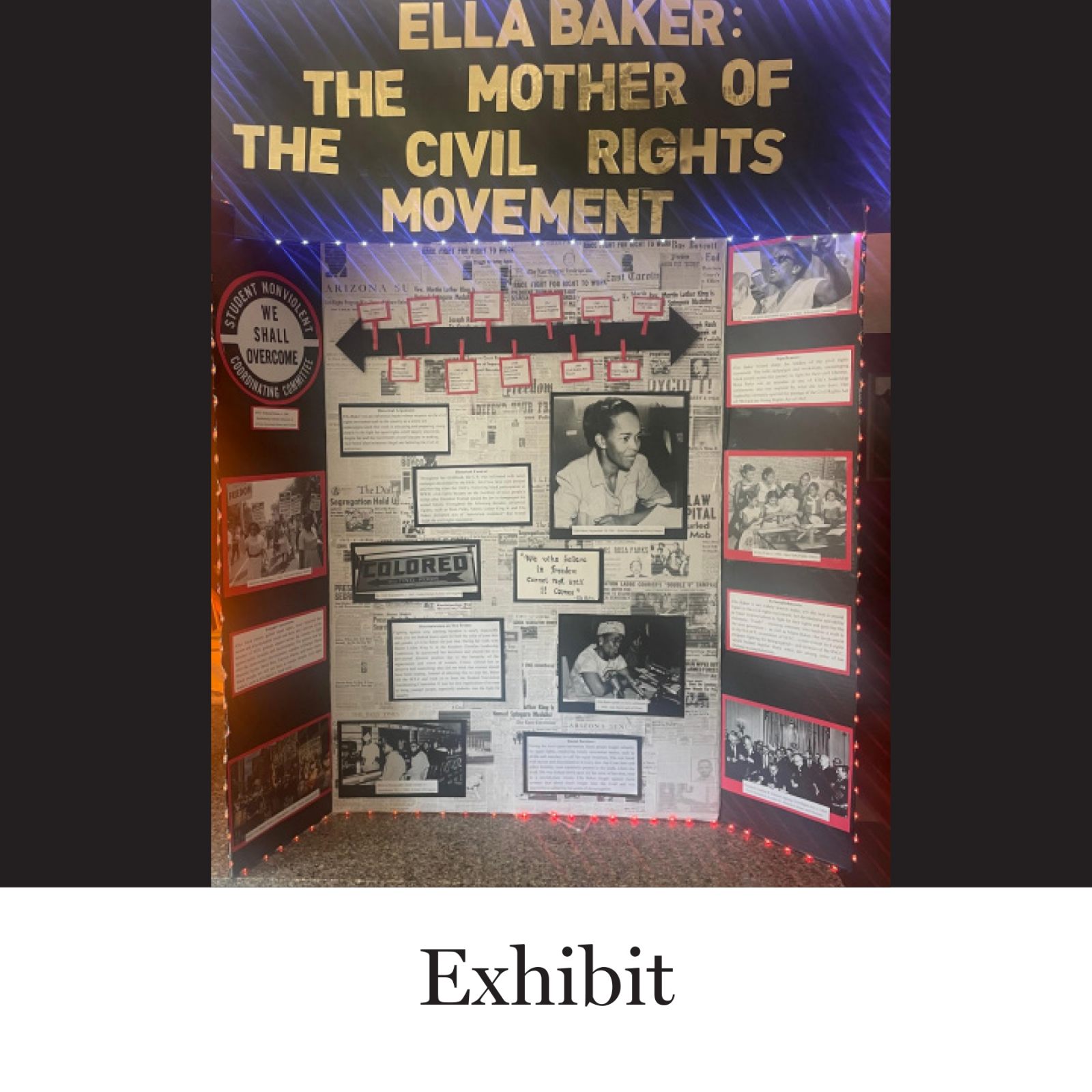 Ella Baker: Frontiers Through Race and Gender
Ella Baker: Frontiers Through Race and GenderKeira E., Rhianna Mason, and Anna Poggi
King Phillip Regional High School
"Ella Baker played a huge role in the civil rights movement. She shaped the leaders of the movement, acting as the mastermind behind it all. She held campaigns and workshops, encouraging black people across the country to fight for their civil liberties. Her leadership not only encouraged others to fight for their rights, thus growing the movement, but also spurred the passage of the Civil Rights Act of 1964 and the Voting Rights Act of 1965. Her efforts worked to achieve the eradication of segregation and
discrimination."
Process Paper and Bibliography
----
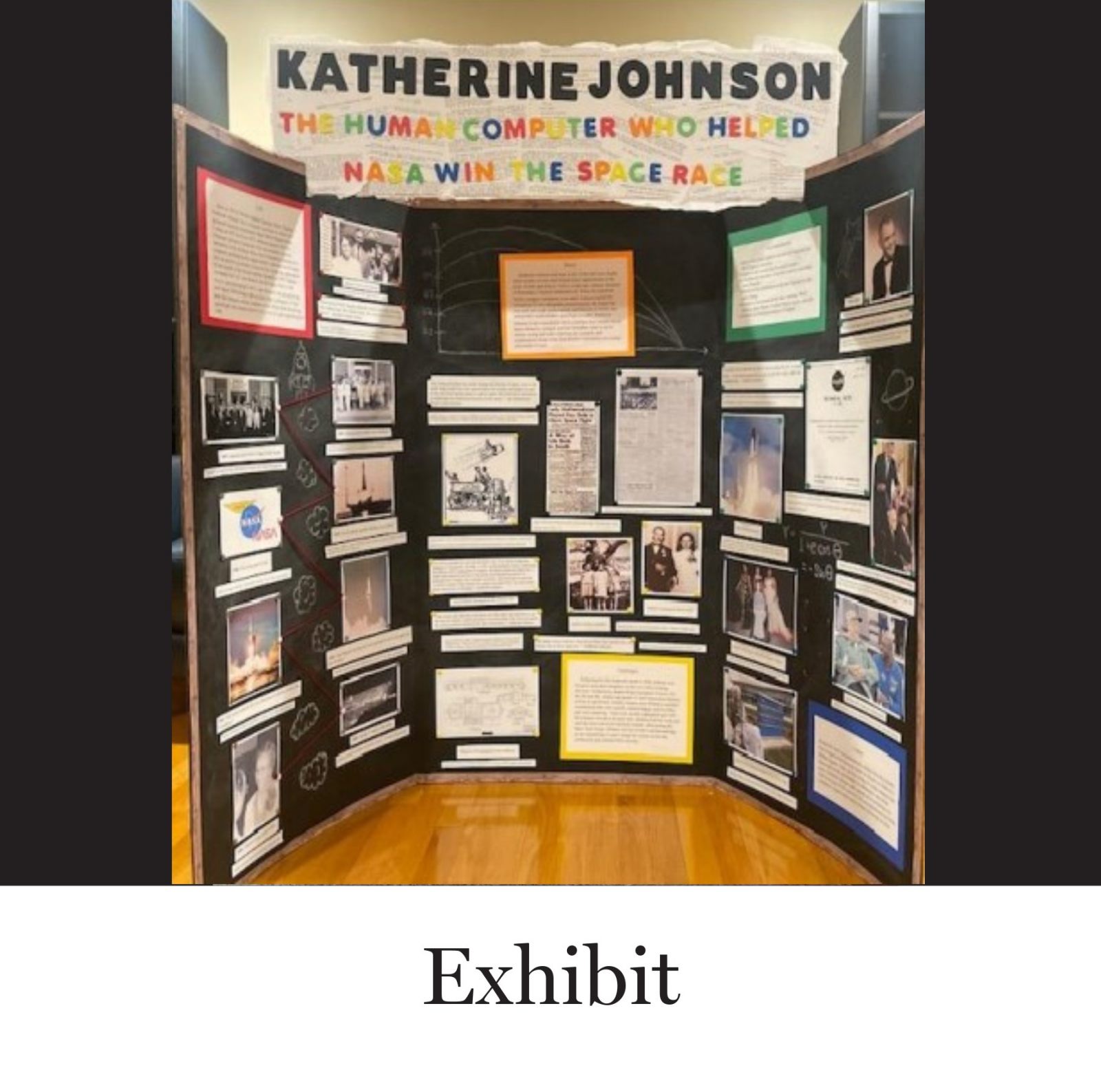 Katherine Johnson: The Human Computer Who Helped NASA Win the Space Race
Katherine Johnson: The Human Computer Who Helped NASA Win the Space RaceMatilde Bellotti and Sydney Guzman
Our Lady's Academy
"Katherine Johnson was born in the 1910s Jim Crow South, where people of color had limited career opportunities in the areas of math and science. From a young age, Johnson dreamed of becoming a research mathematician. When
she joined the NASA Langley Laboratory as an adult, Johnson pushed the boundaries of race and gender discrimination; she forged her own path and made mathematical contributions to NASA that indisputably made modern spaceflight possible."
Process Paper and Bibliography----
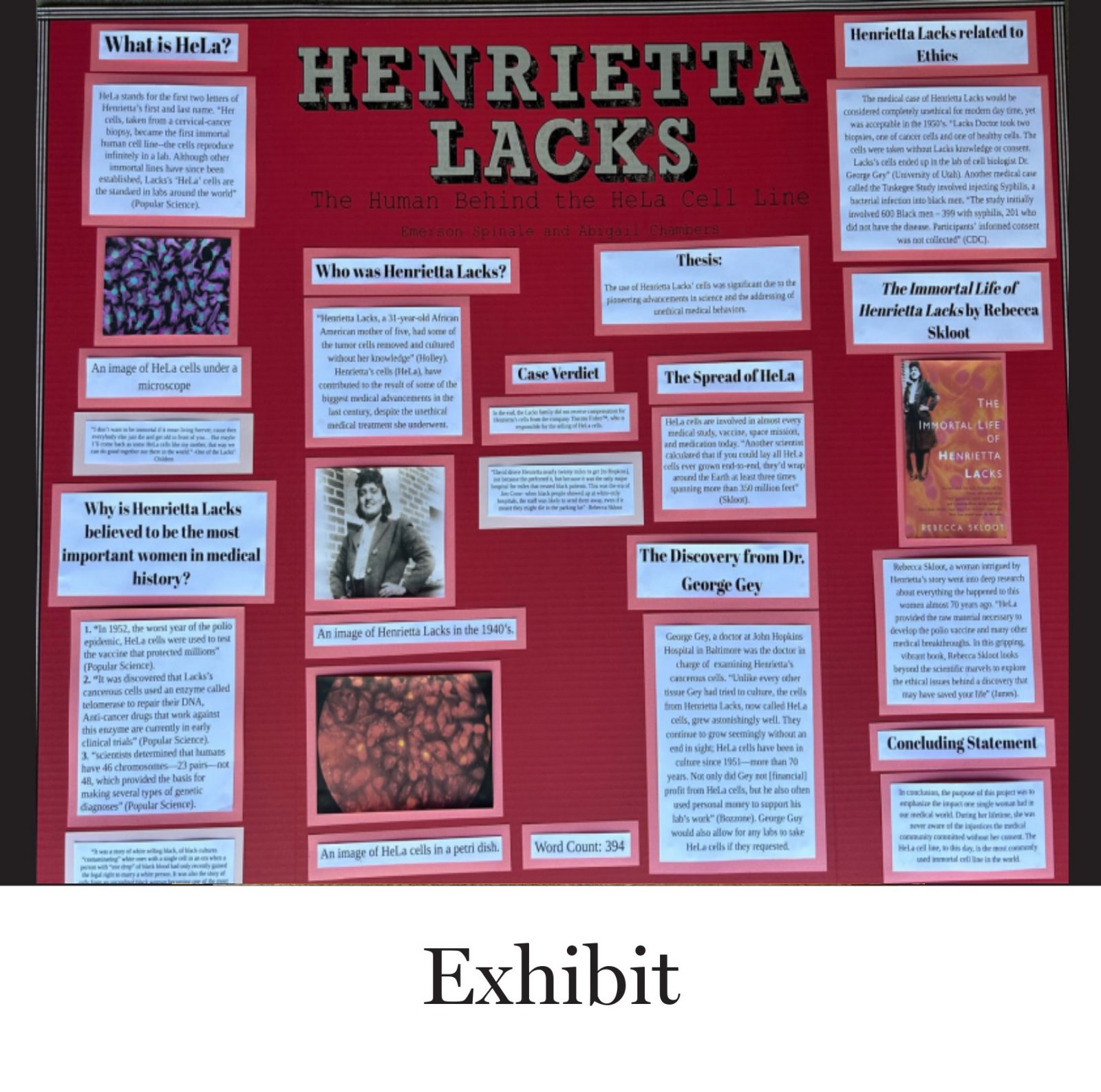 Henrietta Lacks: The Human Behind the HeLa Cell Line
Henrietta Lacks: The Human Behind the HeLa Cell LineAbby Chambers and Emerson Spinale
Plymouth North High School
"The use of Henrietta Lacks' cells was significant due to the pioneering advancements in science and the addressing of unethical medical conditions."
Process Paper and Bibliography
----
Websites
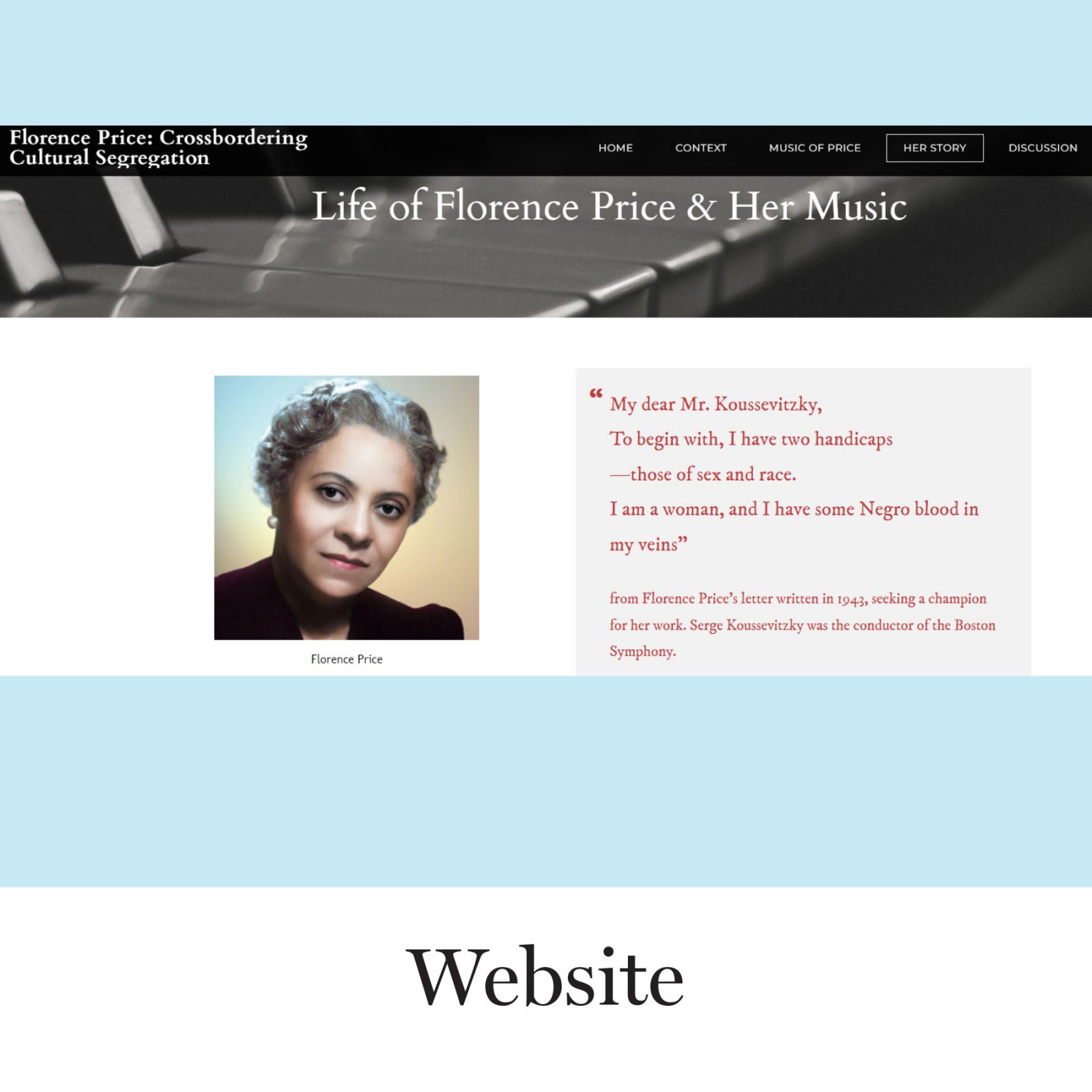 Florence Price: Cross-bordering Cultural Segregation
Florence Price: Cross-bordering Cultural SegregationJoylyn Kim
The Rivers School
"As a prolific African American female composer, Florence Price changed history as she challenged the double barriers of gender and race in the field of classical music, which was dominated by white men. Her life struggles exemplify the covert racism that has culturally excluded racial minorities; however, her achievements, supported by numerous leaders of the Chicago Black Renaissance in the early 20th century, hint to us that affirmative atmosphere and mutual support are essential to solving underrepresentation problems in classical music."
----
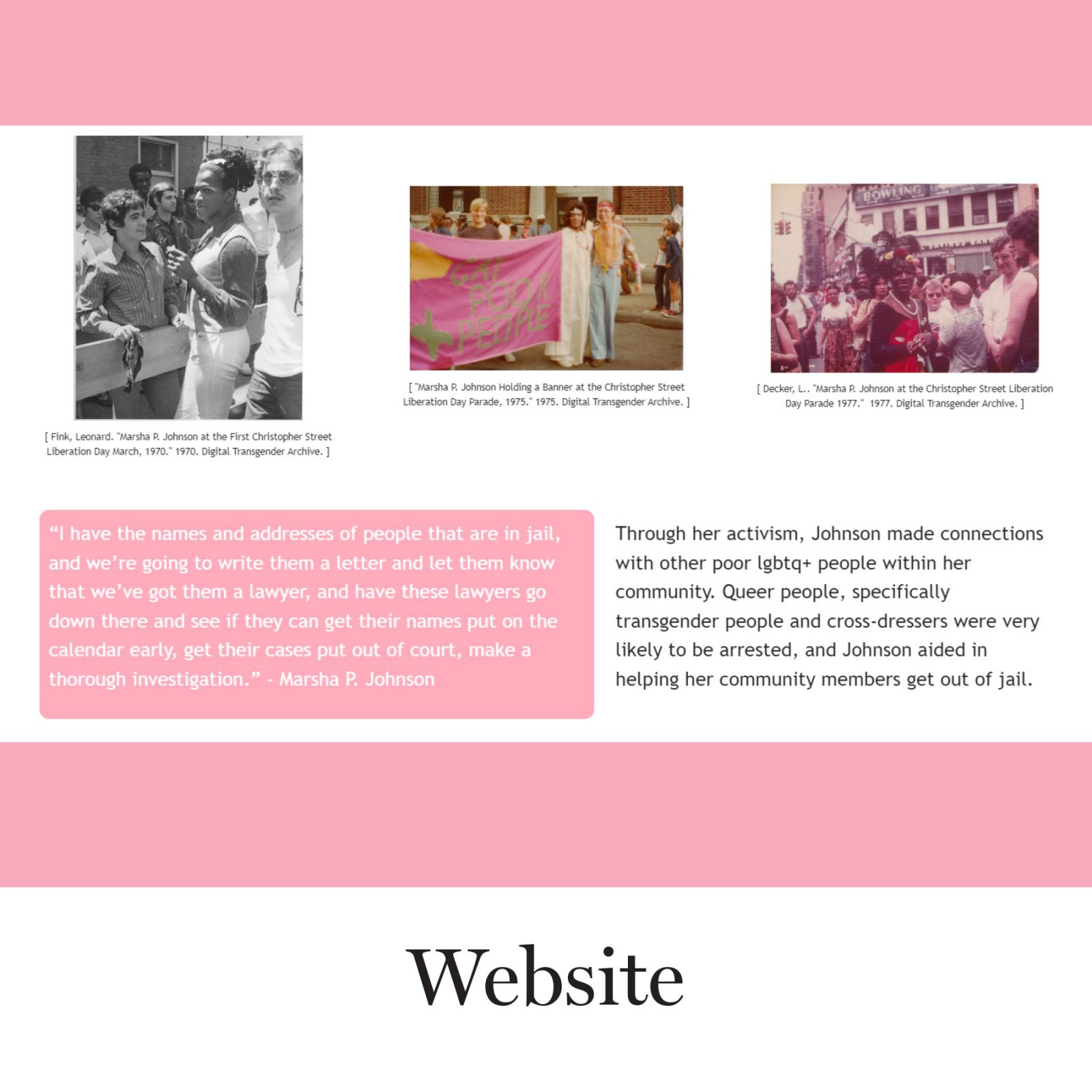 Marsha P. Johnson: Leader in a New Frontier of Inclusivity in the LGBTQ+ Rights Movement
Marsha P. Johnson: Leader in a New Frontier of Inclusivity in the LGBTQ+ Rights MovementTori Bousquet
Hingham High School
"Through her advocacy for transgender rights, her fight against discrimination within the gay community, and her participation in S.T.A.R, Marsha P. Johnson set the foundation for a more inclusive lgbtq+ rights movement that valued gender, racial, and income diversity."
----
Papers
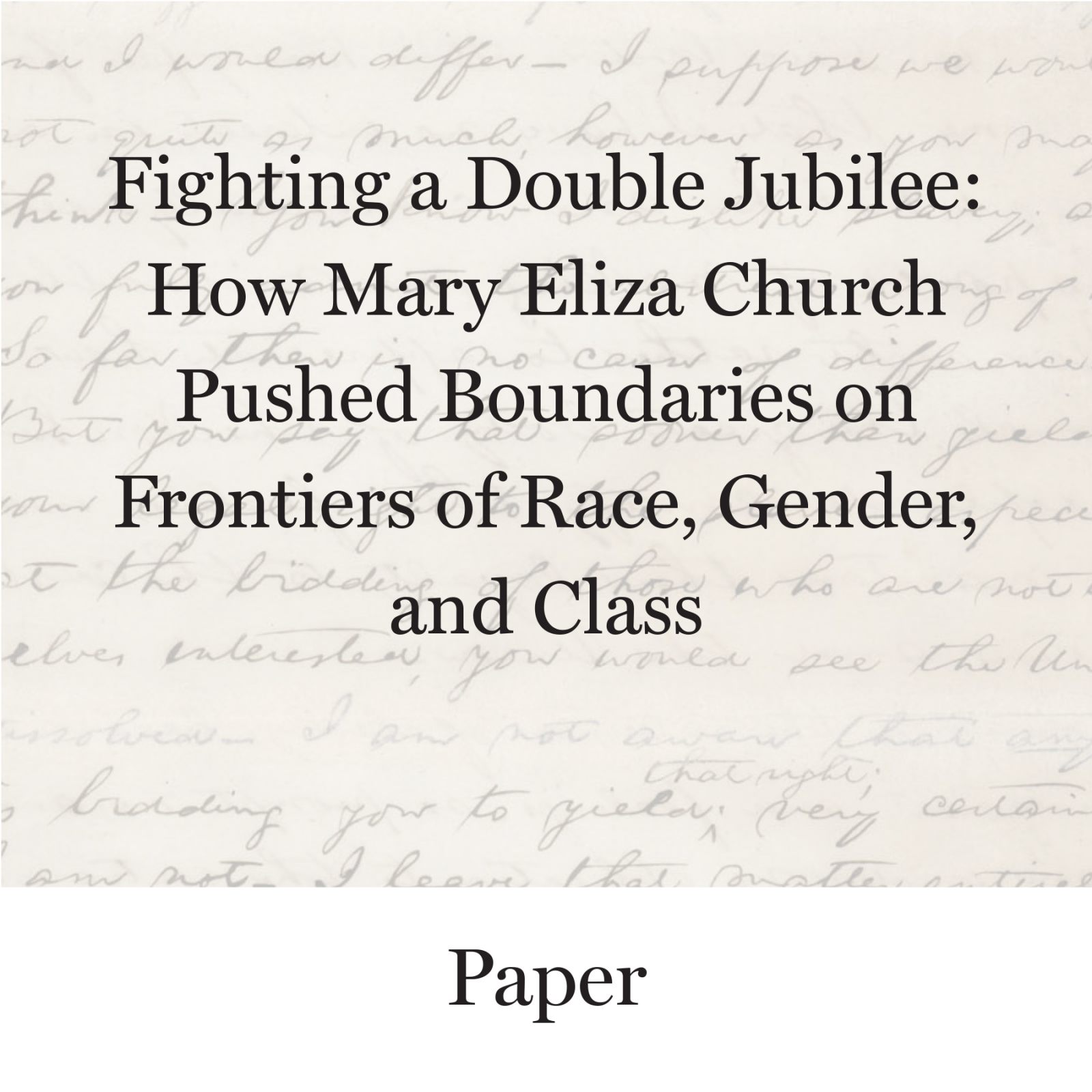 Fighting A Double Jubilee: How Mary Eliza Church Pushed Boundaries on Frontiers of Race, Gender, and Class
Fighting A Double Jubilee: How Mary Eliza Church Pushed Boundaries on Frontiers of Race, Gender, and Class Jerome Montgomery
Winchester High School
"Terrell’s life spanned nearly a century of change in American civil rights, from 1863, the year of the Emancipation Proclamation, until her death just after the Brown v The Board of Education decision in 1954. By being a strong leader, through public speaking, writing, and eventually self-publishing her autobiography, Terrell created a public voice that not only taught people about her journey but shaped the way African-American women’s lives would be interpreted. As an educator and activist for suffrage and racial equality, she brought to light the stories and experiences of women and African-Americans, founded and led key organizations, and helped change laws and policies. Until recently, Terrell has not been widely celebrated [...] But as an advocate and organizer for Black women, Mary Church Terrell deserves a prominent place in the gallery of civil rights heroes. She fought for social justice on two frontiers, race, and gender, by using the third frontier of class: she used her privileges to fight for power for others."
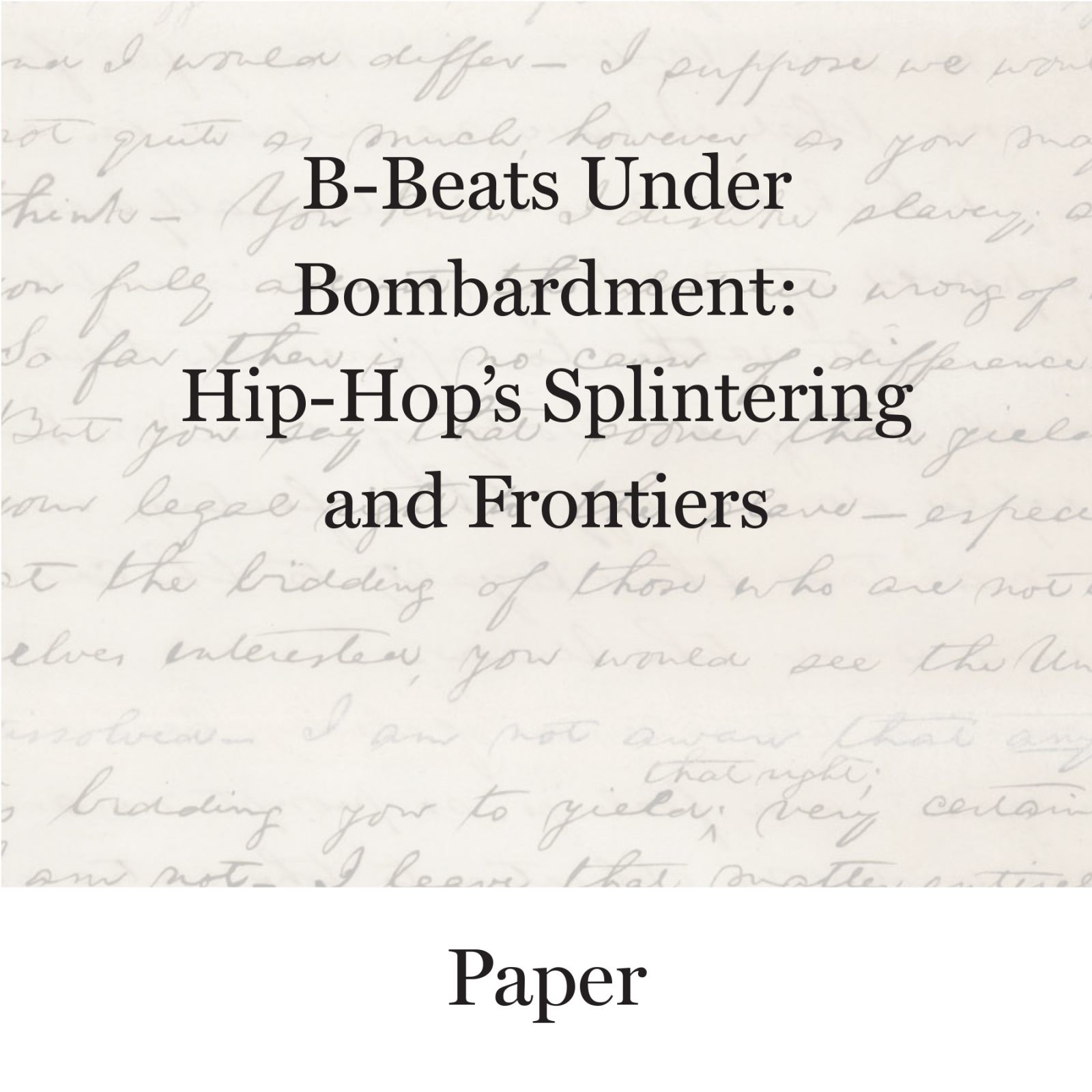 B-Beats Under Bombardment: Hip-Hop’s Splintering and Frontiers
B-Beats Under Bombardment: Hip-Hop’s Splintering and FrontiersDevin King
Bedford High School
"There has never been an artform with such an intense reverence for its predecessors along with a deep drive for radical change and immediacy, as Hip-Hop. Through respect as well as necessity, the young men and women who molded the genre molded it in the shape of the music of their parents and community elders. This in turn made a medium that served as a great unifying culmination of black music and its messaging. However, as the genre left its time worn Bronx basements and clubs and make its way into the rest of the United States, it began to fracture. The unity it once possessed in the hands of the New York born Jamaican diaspora was replaced with regional and stylistic sectarianism, and greatest of all intense pressure from corporations to strip artists of their agency. This decades-long process of struggle left the genre exceptionally diverse but at the cost of its ability to direct change through organized and consistent messaging."
----
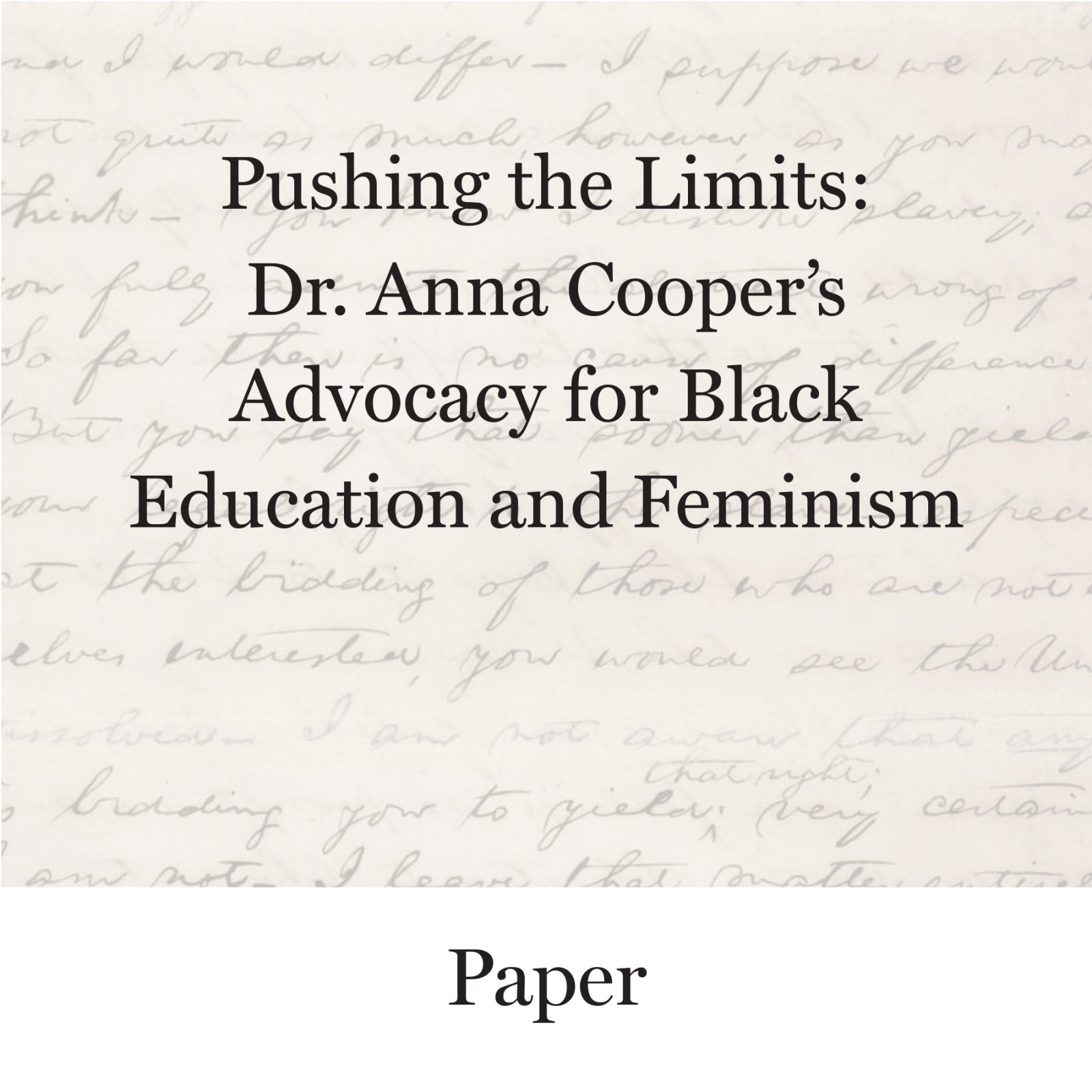 Pushing the Limits: Dr. Anna Cooper's Advocacy for Black Education and Feminism
Pushing the Limits: Dr. Anna Cooper's Advocacy for Black Education and FeminismLayla A.
Burlington High School
"Dr. Anna Julia Cooper [...] improved African-American education and introduced intersectional feminism into the American conscience. Formerly enslaved, Cooper broke the glass ceiling at an early age, pursuing advanced education when there were few opportunities for women—never mind Black women—to do so. Despite social barriers, Cooper overcame these limitations to extend educational opportunities to African-Americans and include African-American women in the suffrage movement."

